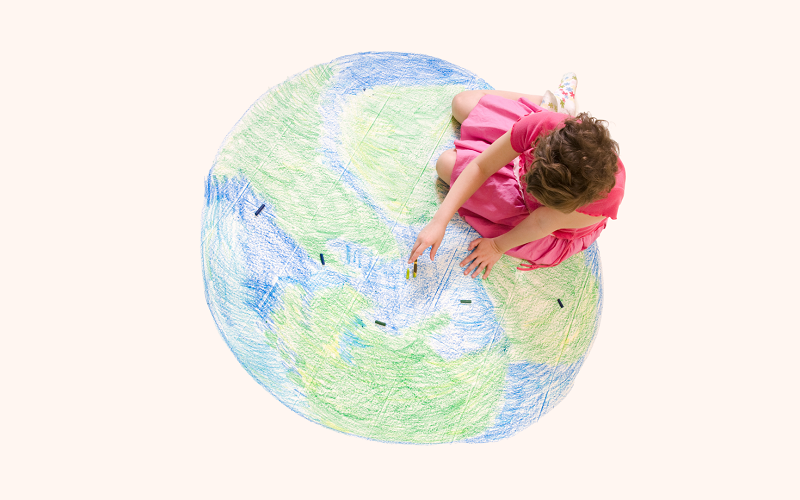
No Public Health Without Planetary Health
News
May 3, 2023
“Fighting climate change today is the best public health opportunity.” – Maria Neira (WHO)
“We are all responsible for the health of the planet.” – Emma Te Patu (WFPHA)
Since the outbreak of COVID-19, the concept of “global health security” has become a topic of academic and popular debate as health specialists gather to discuss various approaches to avert the next pandemic. In an increasingly interconnected world, the primary goal of this agenda is to identify and prevent health concerns that impose a burden on populations, society, and the global economy. One of the Plenary sessions of the 17th World Congress on Public Health (2nd – 6th May, Rome) entitled “No Public Health Without Planetary Health” speaks for itself.
“There is no such thing as the health of only one country. We are all responsible for the health of the planet and understanding and drawing on the Indigenous people’s knowledge systems that have been in place from time immemorial and authentically engaging with this knowledge and using it to inform our global health needs collectively and from an understanding that health is a human right and is, therefore, a priority above all”, – underlines Prof. Emma Te Patu, WFPHA Vice President & MAORI.
The promotion of global health is a vital mission in the modern world of globalization. It requires the cooperation of governmental bodies, global health organizations, medical professionals, educators, volunteers, and advocates within local communities.
Prof. Te Patu has defined the five global health initiatives that play a crucial role in the current context:
- Decolonising public health – Removing systemic barriers to Equity
- Proper resourcing of public health
- Legislative mechanisms to ensure countries are accountable for public health
- Health and growth of the public health workforce
- Accessible and relevant public health education
The WFPHA Vice President has also classified the biggest public health threats:
- Ego and the commercial financial imperative
- Reactionary responses as opposed to strategic responses
- Lack of proper resourcing
Why should climate change be considered the biggest global health threat of the 21st century?
Global crises are closely linked with climate change. Therefore, we must not overlook the existential threat that ecological degradation poses to planetary and human health.
“Climate change is definitely touching all the pillars and supports of our health: access to food, to safe drinking water and to clean air. It is changing the way we will protect our help and the way we need to prevent the worst impacts of climate change. People need to understand that climate change is not just something that will happen to the Planet in the future but it is affecting our health right now: it affects our lungs, and it causes diseases. We are already paying for it. I am convinced that addressing the causes of climate change today will be the best public health opportunity. It will bring benefits to the health system, to the economy, to the population, and make our society more sustainable. We need to increase the speed at the national level, set more ambitious goals, and, therefore, provide ourselves with well-covered health insurance. Our life and survival will depend very much on that.”, – underlines Maria Neira, Director of the Department of Public Health and Environment at the World Health Organization (WHO).
According to the WHO’s estimates:
- Between 2030 and 2050, it is expected that climate change will cause approximately 250 000 additional deaths per year from malnutrition, malaria, diarrhea, and heat stress.
- The estimated direct damage costs to health (i.e. excluding costs in health-determining sectors such as agriculture and water and sanitation) are between USD 2-4 billion per year by 2030.
The destabilizing impacts of climate change disproportionately affect the most disadvantaged. Many low-income countries are particularly vulnerable to sea-level rise, natural disasters, and food and water scarcity. As a result, the lack of resources can lead to forced migrations. How can we safeguard these “unhealthy” territories?
“We know that an unhealthy environment is responsible for 13 million deaths every year due to the lack of safe water or to the lack of clean air. The toxic air alone kills 7 million people annually. The creation of healthier environments will be the best investment we can make to protect our health by guaranteeing access to safe water, safe food, and clean air and by stopping to pollute our oceans with millions of tons of plastic. It’s important to bear in mind that plastic can end up on the human body because fish contains a high number of microplastics that we throw into the oceans. Only if people see the connection between climate change and their health, they will start to act and become more responsive and more determined to fight the causes of climate change”, says Prof. Neira.
The COVID-19 pandemic has exposed the weaknesses and inequalities in our health systems in the face of global crises. The world requires equitable investment in research, surveillance, and preventive health to strengthen global resilience against these emerging risks. What measures should be taken to ensure global health security?
Prof. Te Patu has laid down the following list of priorities:
- Pandemic treaty – an instrument designed to prepare the world for the next pandemic
- More consultation with civil society
- Decolonising public health
- Greater collaboration between international, regional, national, and local public health communities
- Government transparency in messaging and addressing public health and what it entails
“We are all citizens of the world now. Pandemics do not recognise borders, so a united international response is vital. The same approach is used when we deal with the environment. If, for example, we do the deforestation in the Amazonia, in one way or another it will affect all of us”, concludes Maria Neira.
